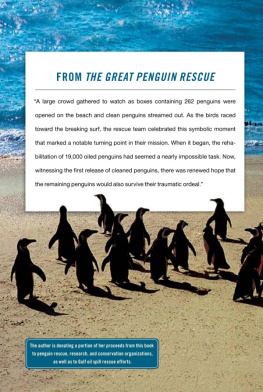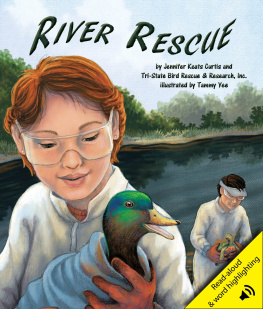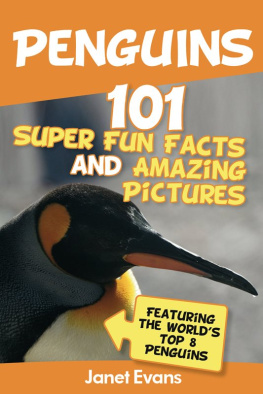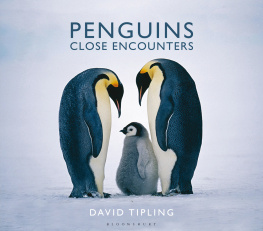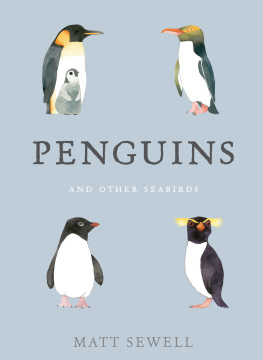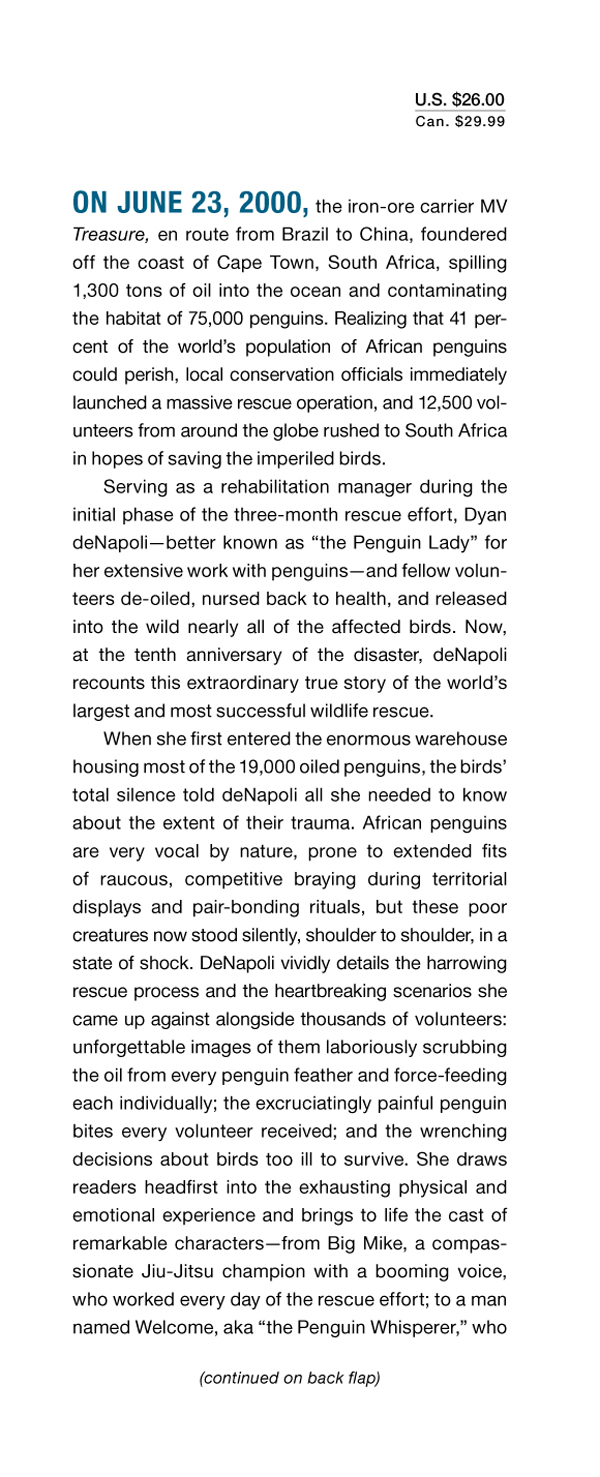
Locations between Dassen and Robben Islands where the iron-ore carriers Treasure and Apollo Sea sank and spilled their oil. The two ships sank exactly six years and three days apart.

, as well as to organizations devoted to the Gulf oil spill rescue efforts.

Free Press
A Division of Simon & Schuster, Inc.
1230 Avenue of the Americas
New York, NY 10020
www.SimonandSchuster.com
Copyright 2010 by Dyan deNapoli
All rights reserved, including the right to reproduce this book or portions thereof in any form whatsoever. For information address Free Press Subsidiary Rights Department, 1230 Avenue of the Americas, New York, NY 10020.
First Free Press hardcover edition October 2010
FREE PRESS and colophon are trademarks of Simon & Schuster, Inc.
For information about special discounts for bulk purchases, please contact Simon & Schuster Special Sales at 1-866-506-1949 or business@simonandschuster.com.
The Simon & Schuster Speakers Bureau can bring authors to your live event. For more information or to book an event contact the Simon & Schuster Speakers Bureau at 1-866-248-3049 or visit our website at www.simonspeakers.com .
Designed by Jill Putorti
Manufactured in the United States of America
10 9 8 7 6 5 4 3 2 1
Library of Congress Cataloging-in-Publication Data
DeNapoli, Dyan.
The great penguin rescue : 40,000 penguins, a devastating oil spill, and the inspiring story of the worlds largest animal rescue / Dyan deNapoli.
p. cm.
1. African penguinEffect of oil spills onSouth AfricaAtlantic Coast. 2. Oil spills and wildlifeSouth AfricaAtlantic Coast. 3. Wildlife rescueSouth AfricaCape Town Region. 4. Wildlife rehabilitationSouth AfricaCape Town Region. 5. DeNapoli, Dyan. I. Title.
QL696.S473D46 2010
639.978470968dc22 2010017156
ISBN 978-1-4391-4817-4
ISBN 978-1-4391-5486-1 (ebook)
Maps by Paul J. Pugliese.
This book is dedicated to my extraordinary parents, Phyllis Carter deNapoli and Paul Angelo deNapoli, who have always loved, supported, and guided me. They were shining examples of how to treat others and how to live a meaningful life. They believed in melong before I learned to believe in myselfand I am who I am because of them. I am profoundly grateful to my remarkable mother; although she is now in spirit, I still feel her loving presence every day.
And to every person who worked so tirelessly to save the penguins from the Treasure oil spill: thank you, from the bottom of my heart.
Contents
Appendices
THE GREAT PENGUIN RESCUE
PROLOGUE :
Black WatersPanic at Sea
The question is not, Can they reason? nor, Can they talk? but rather, Can they suffer?
JEREMY BENTHAM, EIGHTEENTH-CENTURY PHILOSOPHER
There they were. The scales on the sardines flashed and shimmered as they reflected the sunlight streaming through the water. After feeding their ravenous chicks for two straight days, and having swum several miles to reach the foraging grounds, the penguins were ready to eat. While they usually went out to sea in small groups, once they located a school of fish, every penguin had to isolate and capture their own prey. Each bird was now on its own. One of the penguins took a deep breath and dove beneath the sparkling surface of the ocean, swimming until it was below the schooling fish. The penguin hovered there, its black back blending in with the dark ocean floor, helping to conceal it from the sardines above. Then, in a sudden burst of speed, it shot up through the swirling mass, grasped a silvery fish behind its gills, and, while still underwater, swallowed it headfirst and whole. A swift and agile hunter, the penguin caught and swallowed several more fish before its aching lungs signaled the need to come up for air. After being underwater for several minutes, it surfaced far from where it had originally submerged.
Only now, the penguin found itself in the midst of a thick and noxious substance that clung to its feathers and slowed it down as it swam. The caustic oil got into the birds eyes, burning them and making it hard to see. Confused and anxious, the penguin struggled to make its way through the viscous black stuff floating on the surface of the ocean. The heavy oil coating its body weighed it down, making it hard to keep its head above water. The penguin frantically pumped its wings, but it was becoming increasingly difficult to move. With every breath, it inhaled some water, along with the traces of oil coating its beak. Choking on the toxic mix burning its lungs and throat, the penguin coughed and struggled to breathe.
The sticky oil had caused the penguins dense, overlapping feathers to clump and separate, and the cold ocean waters now penetrated its feathers like icy fingers. The water eventually reached the penguins skin; as its body temperature plummeted and hypothermia set in, it became weak and disoriented. The penguin swung its head from side to side, searching for the nearest landmass. If it could make it to shore, it might get some relief from the cold and the fumes. There was an island several miles off in the distance, but did the penguin have the strength to swim that far? Instinct drove it to head in that direction. But, in its weakened state, it was several strenuous hours before the island was within reach. As the penguin made its final approach, the breaking waves tossed it violently against the rocks, which were now slick with oil, causing it to slip and struggle to get its footing. Exhausted, the penguin finally heaved itself onto the rocky beach, where hundreds of other penguins stood huddled together, the heavy black oil that slowly dripped from their bodies forming expanding black puddles around their feet.
Some of the penguins stood statue-still. Hunched over, their wings hanging limply by their sides, they were in a state of shock. Others were compulsively preening themselves, trying to remove the thick substance from their bodies; but it was an impossible task. The oil clung to every last feather and, while using their beaks in their futile attempts to clean and straighten them out, the birds were inadvertently swallowing large amounts of the toxic mess. If the oil remained in their intestinal tracts, bleeding ulcers would form, causing their normally green and white feces to turn dark brown from digested blood and swallowed oil. Over time, the toxins from the oil would get into their bloodstreams, where they would break down the red blood cells, leading to anemia. Eventually, the ingested oil could kill them.
The penguins were now landlocked. They could not return to sea to hunt for food, because their soiled feathers no longer provided protection from the icy waters. Any oil-coated penguins that were eventually driven by hunger to brave the waters to feed were quickly forced back to shore by the penetrating cold. Even though schools of fish were just yards away in the ocean, the penguins were compelled to stay on dry land; but standing there, they would soon starve to death. Their hungry chicks would starve as well. It was an impossible situation. There were no good options for the penguinsor their chicksand there seemed to be no way out of their deadly predicament.

